Text
Yasmin Benoit Launches UK’s First Asexual Rights Initiative in Partnership with Stonewall
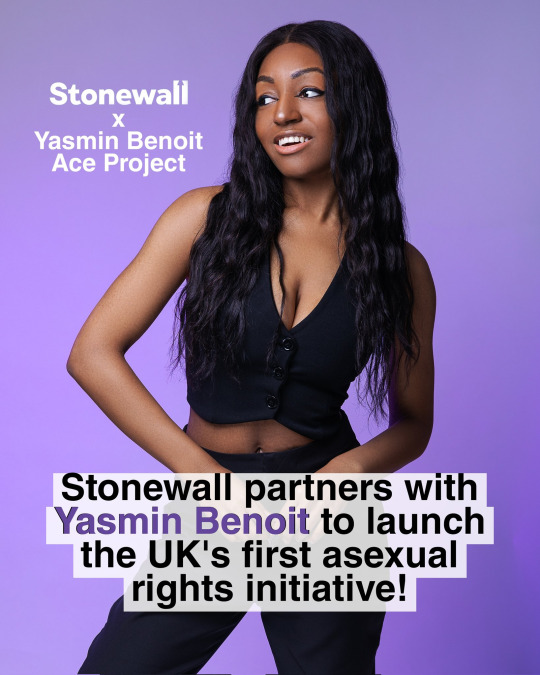
I'm so proud to announce that I am partnering with Stonewall - Europe’s biggest LGBTQ+ rights organisation - on the Stonewall x Yasmin Benoit #AceProject!
We are going to be conducting research into the issue of asexual discrimination in the UK and putting together a report which will be used to provide a clear set of actions to influence policy and legislation.
It's time for asexuality to be recognised as a legitimate orientation in the UK and protected as such. It's time to end the medicalisation of asexuality. We can only do that with research, and we need YOU to be participants! It's time for ace voices to be heard, so we need you to be loud!
If you're over 18, based in the UK, and have experienced any degree of asexual discrimination during your time in education, in the workplace or in healthcare, please register your interest in being part of our focus groups: https://www.stonewall.org.uk/stonewall-x-yasmin-benoit-ace-project or email me directly at [email protected]!
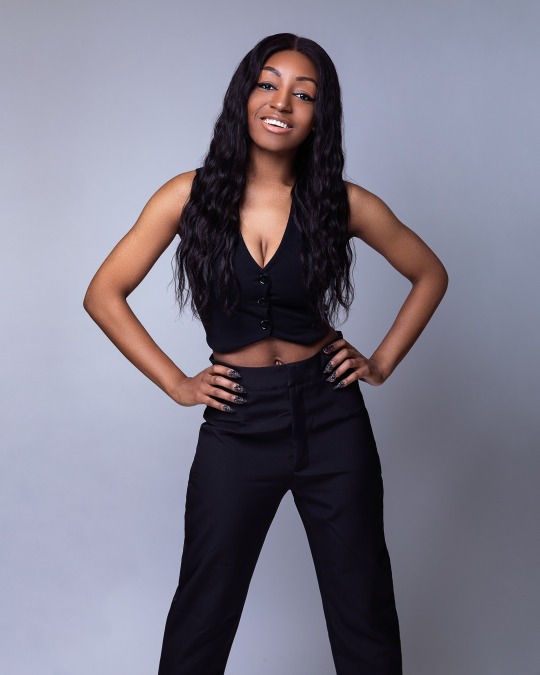
Stonewall are the biggest LGBTQ+ rights organisation in Europe and have been pivotal in the fight for equality, now they'll be pivotal in protecting the ace community too. It's an absolute honour to partner with them on this and to be entrusted with such important work. Representation in research and legislation matters too. I've always wanted to use my background in social science to contribute to that. Thank you to everyone who has shown their support for the project so far.
If you can’t help, please share this so we can attract more participants and raise awareness for the initiative! It’s time to change the game.
2K notes
·
View notes
Text
Yasmin Benoit for the cover of Unicorn Zine’s SEX Issue (9)
Not gonna lie, I was pretty dang star-struck when I spoke with Yasmin Benoit. She’s an internationally recognised alternative model, academic and LGBTQ+ activist. Yasmin identifies as aro-ace, which is short for aromantic asexual. Through modelling, public speaking, writing and research, she’s shaking up the mainstream perception of these queer identities in massive ways, as well as promoting the visibility of queer people in colour.
U: Hi Yasmin! For those readers who may be less familiar, could you give us a description of what it means to be ‘aro-ace’?
Y: I’m sure you’ll find some people with different meanings, but asexuality is most commonly defined as experiencing little-to-no sexual attraction. Some resources mistakenly say that it’s having no sexuality, or no sexual feelings or desires, but it has nothing to do with that. It’s specifically about experiencing a lack of sexual attraction. It’s a sexual orientation, just one that isn’t really oriented anywhere.
Being aromantic is most commonly defined as experiencing little-to-no romantic attraction. I’ve never been inclined towards romantic relationships, nor do my emotions or connections manifest that way. I place that same energy into platonic relationships. People tend to think that being asexual and aromantic go hand-in-hand, and while it did for me and there is definitely a significant overlap in the communities, there are lots of asexual people who aren’t aromantic and aromantic people who aren’t asexual.
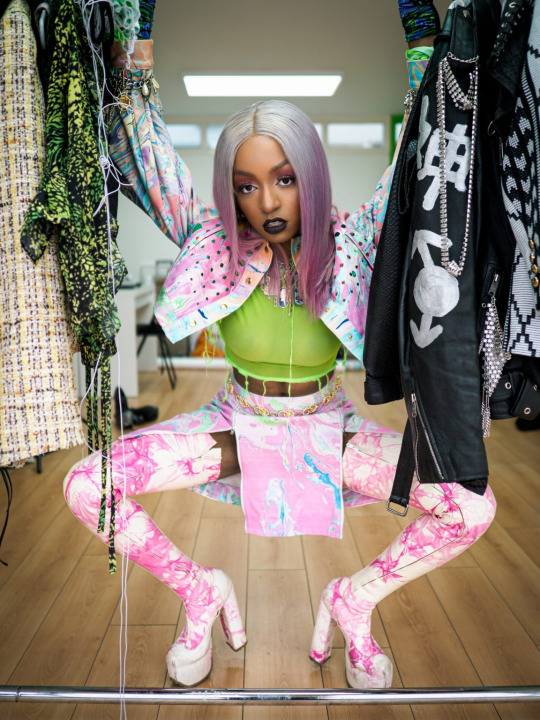
U: You’ve spoken openly about your teenage years, and how friends would ask pretty personal questions about your sexuality before you had discovered the terms ‘asexual’/’aromantic’. Do you think the kinds of questions people ask are shifting now that the terms are more accessible? And if so, how?
Y: Honestly, the questions I get now and the questions I got back then really haven’t changed. The mistakes people make are the same, but since they’re not teenagers, people offline usually aren’t so likely to be as blunt about it. People online, not so much!
Sometimes it seems like asexuality has been caught in some kind of groundhog day.
Like, I can watch interviews that activists did in the media in the early 2000s and the questions they get are the same, albeit delivered in a less politically correct way.
Most people are familiar with the term ‘asexual’ because it’s an old term and it’s been on the outskirts of conversations for decades at least; people just don’t have the inclination or intrigue to look into what it truly means because it’s often treated as an irrelevant aspect of human sexuality. Romantic orientations are still such a new conversation that aromanticism is even further behind asexuality.
U: You’ve achieved a HUGE amount over the course of a few years, from press features to conferences. What is your proudest accomplishment?
Y: It’s quite hard to choose! When you go into things not expecting to achieve much, even the little things feel quite remarkable. If I had to narrow it down, I’d probably say either Prague Pride 2019 or Ace of Clubs in 2019 (that was a good year).
I really like doing the kind of work where I can create in-real-life memories for asexual people in spaces that they wouldn’t usually have.
Prague Pride was my first time working at an international Pride event, I was invited as a special guest and was doing TEDx-style talks and hosting events. It was pretty nerve-wracking doing all of that in a country I’d never been to, so it felt like an achievement that I even managed to pull it off. It was the first time they’d had an asexual special guest and ace-centric events, and it lead to a really big turnout of asexual people and increased our visibility there.
Ace of Clubs was the first ever asexual pop-up bar, which I hosted during London Pride in 2019. It was a two-day event that provided the only asexual space at the entire festival, we had a panel, a projection screen, food, an open bar, music, games… It gave asexual people the chance to meet each other in person – which some had never done before – and party together in a safe space. So I was really proud that I had the chance to bring that to fruition. People still ask me about Ace of Clubs a lot and I still have a lot of lovely supporters in the Czech Republic! Hopefully I can bring the bar back and visit Prague again in the future.
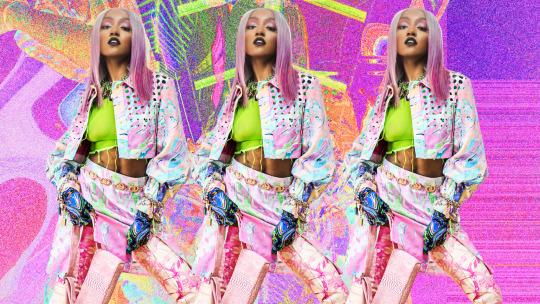
U: You’ve been dubbed the “main face of asexuality.” How does it feel to be called that?
Y: It’s pretty crazy. It isn’t a position I expected to be in and it took me a little too long to realise that people were being serious when they said that! It’s flattering, for sure, if I think of it as recognition for all of the work I’ve been putting in. It’s also quite a lot of pressure, because people are always looking for me to do something incredible and life-changing for everyone. There’s also a lot more eyes on me, regarding what I do, what I say, how I conduct myself, who I work with, what I post etc, which makes it harder for me to just relax and be unguarded as a member of the community. So there’s pros and cons. But it’s an honour to have that kind of recognition and I do my best to use that attention in a way that’s beneficial to the entire community.
U: A focal point of your activism has been to change people’s perceptions of what asexuality looks like through alternative lingerie modelling – which, by the way… ICONIC. You even coined the hashtag #ThisIsWhatAsexualLooksLike. Since you started this journey, what kind of progress have you seen?
Y: Haha, thank you! I like to think there’s been some progress. I think my modelling has allowed me to discuss asexuality in quite sexualised spaces where it wouldn’t usually come up and bring it to the attention of a different audience.
I’ve definitely noticed an increase in asexuality being talked about in sex-positive communities and I’ve been grateful to have the chance to fill that void myself.
The hashtag has really turned into more of a campaign or movement for asexual visibility. It’s become a way for the community to represent themselves without having to rely on the media to do it. It’s been amazing to see it take on a life of its own and be used on so many platforms, including those I don’t use. I think it’s really helped some aces be able to feel more empowered in their self-expression, based on what I’ve heard. It’s also a series that I write for a website called Qwear Fashion, where I interview ace people about their stories and style! It’s on it’s tenth edition now.
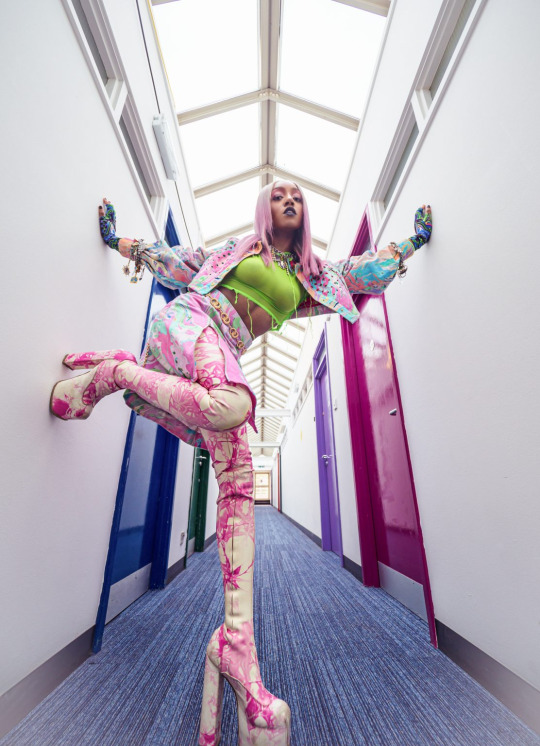
U: What does you-time look like for you? What do you do in your spare time – if you have any spare time?!
Y: When your work isn’t structured in a typical 9-5 way, it can be particularly hard to switch off. Spare time often just feels like time when I should be doing something constructive, whether it’s doing extra work on a project or finally answering my Instagram comments. I’m probably spending it playing far too much Sims 4, reading some history book, going out for something to eat or wandering around a forest in the countryside somewhere. The last one really is a treat.
U: So on top of all the other things you’re doing,you’re also a researcher at California State University. Tell us a bit about the sort of research you’re carrying out and the headway that’s happening there.
Y: There’s a researcher at California State University, San Bernardino conducting research into families and relationships among asexual people, I’m part of the research advisory board and their research team. I do the coding and analysis for the transcribed interviews. I was always interested in the academic side of asexuality activism and I’m definitely hoping to get my name on a research paper someday. This is my way of dipping my toes in. And to anyone reading this and thinking, ‘Why get a model to do research?’ I have an MSc Crime Science degree and a BSc Sociology degree, so it’s actually right up my alley!
U: What advice would you give those who are questioning their sexuality based on your experiences?
Y: I guess first and foremost, I’d say that
sexuality isn’t as black and white as we often think it is.
Every single person’s sexuality is different, multi-layered and fluid to some degree. When we’re talking about our sexual orientation, romantic orientation, desire, libido, arousal, preferences, all of those things – there is no blueprint, despite what we’re taught. There is no typical way to experience sexuality. It’s that idea which makes many queer people – including asexual people – feel like they’re abnormal or missing something.
It’s okay to question your sexuality, in fact, it’s healthy to do that. If you want to analyse it, do that, but through the lens that there isn’t necessarily anything wrong with what you are or aren’t experiencing. And if you find a term that helps you describe what you’re feeling and you want to use it, use it! Don’t worry about having to spend your entire life using it. And if you don’t want to use any terminology or label, don’t. You don’t owe anyone a clear-cut answer and it’s entirely possible to live happily without neatly fitting into any of these preconceived sexuality boxes. I do it all the time.
U: And what does a good aro-ace ally look like? What can they do and say to support the aro-ace community?
Y: Include us in conversations, amplify our voices, support our work and help to normalise our experience! If you’re speaking about sexuality and relationships but you aren’t including asexuality or aromanticism then you’re missing out a significant chunk. The latter includes the least amount of effort and actually makes a huge difference.
U: So… what’s next for Yasmin Benoit?
Y: Depending on when this comes out, I’ve got a considerable line-up of talks, online appearances, and photo shoots scheduled for in-or-around Ace Week!* So that’s what’s immediately next. But the fun thing (and the unsettling thing) about my job is that I never know what’s around the corner! There’s some things that should be coming that I can’t announce yet and some I’m actively working towards, but I don’t want to jinx it. With the support and encouragement of the aro/ace community and our allies, I’m sure there’s good things on the horizon!
https://unicornzine.com/cover/the-face-of-aro-ace-lets-get-to-know-yasmin-benoit/
#yasmin benoit#thisiswhatasexuallookslike#asexual#aromantic#asexuality#aroace#unicorn zine#sex education#asexual awareness#sex positive#ace
56 notes
·
View notes
Text
Yasmin Benoit Makes History in Asexual-Themed Lingerie Campaign
“At the forefront of the Asexual visibility movement is British Model Yasmin Benoit, who you’ve most likely seen online looking incredible whilst making ace-history. As the creator of #ThisIsWhatAsexualLooksLike, their work often brings light to many asexual misconceptions and shows you that being Asexual doesn’t look just one way. To celebrate Asexual Awareness Week, Yasmin has made history by collaborating with Playful Promises to create the first-ever Asexual theme lingerie campaign!” - Unite UK
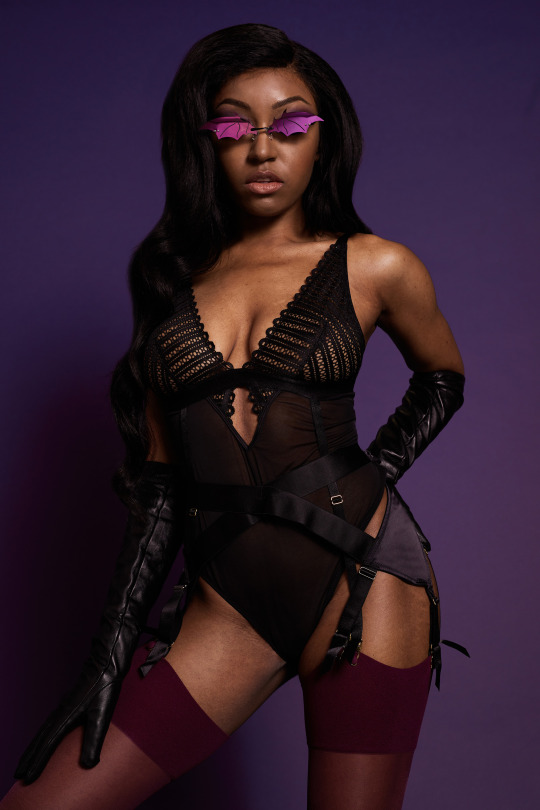
What is a common misconception about asexuality that you wish to debunk?
A common misconception that I try to challenge when incorporating activism into my modelling is this pervasive idea that there's an asexual way to look or dress. It's a message I've received ever since I started being more open about my asexuality - people would say that I 'didn't look asexual.' Because I was a young Black girl, because people thought I looked nice, because I put some effort into my appearance.
There's this belief that if you're not sexually attracted to anyone, then it's either because you're sexually unattractive and no one would want you, or you should make yourself sexually unattractive, as not to attract any kind of attention. It can be quite a dangerous mentality, because it means that asexual people looking attractive is somehow extra provocative and trigger more aggression in others. This strange, frumpy asexual stereotype can make asexual people feel like they can't experiment with fashion and express themselves through it the same way as everyone else can. I don't think your sexual orientation needs to determine the way you dress.
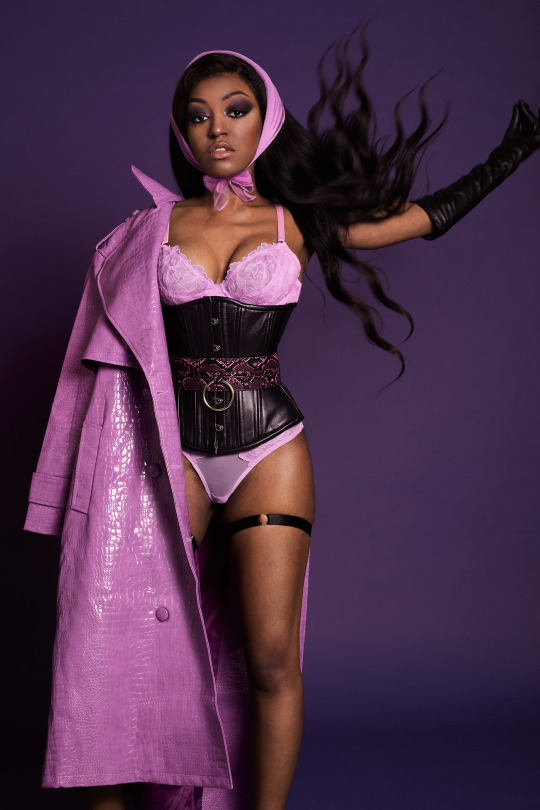
What is the significance of having an asexual lingerie model?
Lingerie is associated with sexuality, it's seen as being a sex-positive thing and it's associated with embracing your sexuality. It's also associated with feeling sexy for other people. I think having an openly asexual model who loves lingerie, but not for sexual reasons, shows the many ways that you can appreciate these kinds of designs. It also includes asexuality within a sex-positive space, which I think is really important, as we're often left out of those because of the assumption that we have no sexuality, no sexual interests, or that we're inherently anti-sex.
It's also really significant for me personally, because queer people - particularly queer racial minorities - are taught to dim parts of ourselves to stay palatable, employable and avoid stigma in our respective industry. Being openly asexual isn't necessarily going to please everyone or make them want to work with you, it can have the opposite effect. To have the chance to to blend the theme of the asexual flag into the photo shoot for a well-established lingerie brand is amazing. I haven't seen a lingerie brand ever do that before, so it's great to be part of a historical moment. I hope it makes other asexual people feel seen and empowered.
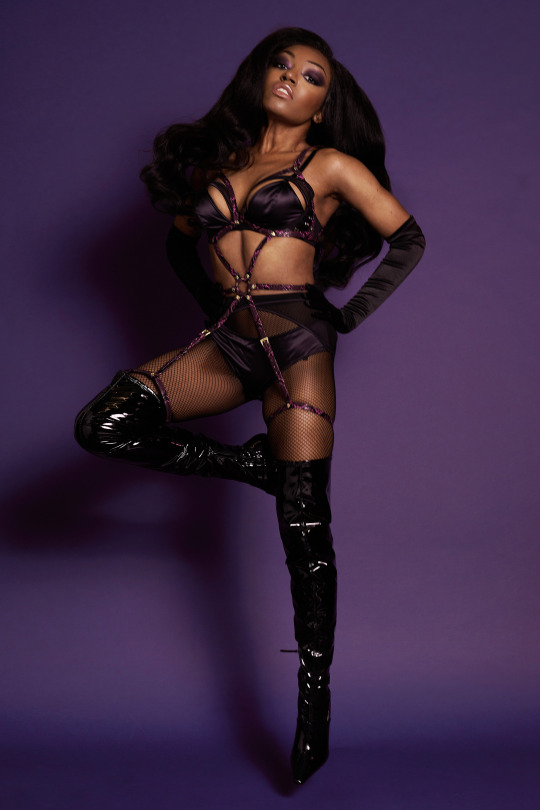
How does lingerie help you express yourself?
I've always had quite an unusual style, I don't like limiting myself to anything. Growing up interested in alternative and gothic subculture, I always saw things like corsets, stockings, big boots and things like that as being integral parts of a cool outfit. I also used to be really into video games and professional wrestling, where the women were always wearing something very akin to lingerie and kicking ass doing it. I guess it made me associate those looks with being powerful, and it was something I wanted to incorporate into my own style. So when I wear it, I feel like I'm channelling that energy. Lingerie is the closest thing you can get to a straight-up superhero outfit without going full Comic-Con. Unfortunately, you can't walk around every day in lingerie but photo shoots give me the opportunity to experiment with it and feel like I'm capable of back-flip-karate-kicking a giant man out of an arena.
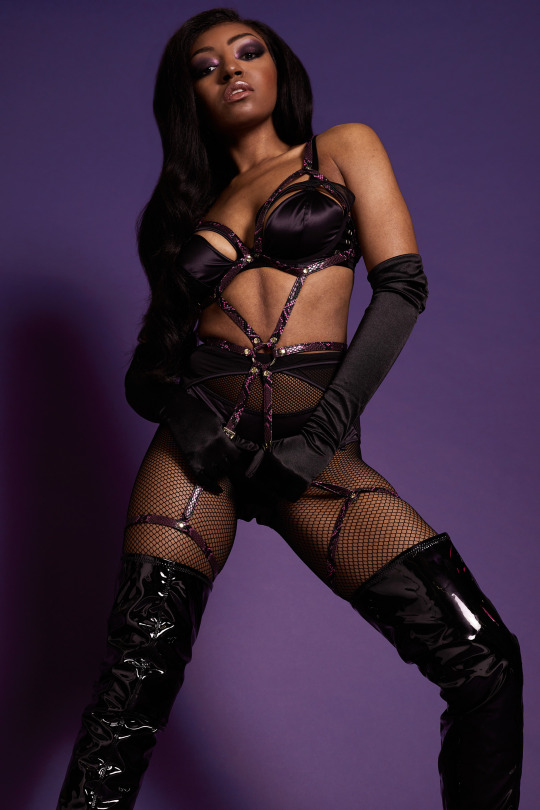
What advice would you give to someone who identifies as asexual and is yet to “come out”?
Other people's reactions to you aren't a reflection of you, it's a reflection of what they don't know. There's a chance that people will completely get it and accept it right away, and there's a chance that they won't do that, but the latter doesn't mean that it's hopeless. It takes some people a while to understand. I also recommend that asexual people yet to come out prepare themselves for doing it often, as it isn't the kind of thing you just have to do once. It can be helpful to have some resources you relate to on hand, as people sometimes understand and accept asexuality more when they can see that it's a genuine sexual orientation that other people experience, not just a random word you heard on Tumblr one time. Finally, it's important to know that coming out isn't essential. You don't have to share the intricacies of your sexuality with anyone, not everyone is entitled to that information. If you don't want to use a label or tell people about it, or if you just want to keep it on a need-to-know basis, that's your right too.

How do you wish asexual people were more included in events such as Pride?
For me, it isn't just about including ace flags in the corporate side of Pride, it's expanding our idea of what Pride is and how the asexual experience relates to it. Asexual people have always been part of Pride, we might not have experienced the same systemic oppression as other identities, but we have the similar experience of having a pathologised, stigmatised identity which has lead to us being taught that there's something inherently wrong with us. It's something we have to unlearn and Pride is all about embracing the parts of your sexuality that our society has taught us to be ashamed of. I wish that we could expand our understand of queerness outside of who wants to have sex with who and how. That way, there would be less debate about asexual inclusion and it'd happen organically, and people would put the same effort into representing the asexual community as all the others. Personally, I'd love to be able to do what I did in 2019 when I opened the first asexual bar at London Pride without our inclusion sparking questionable think-pieces about whether or not we should be allowed to be there.
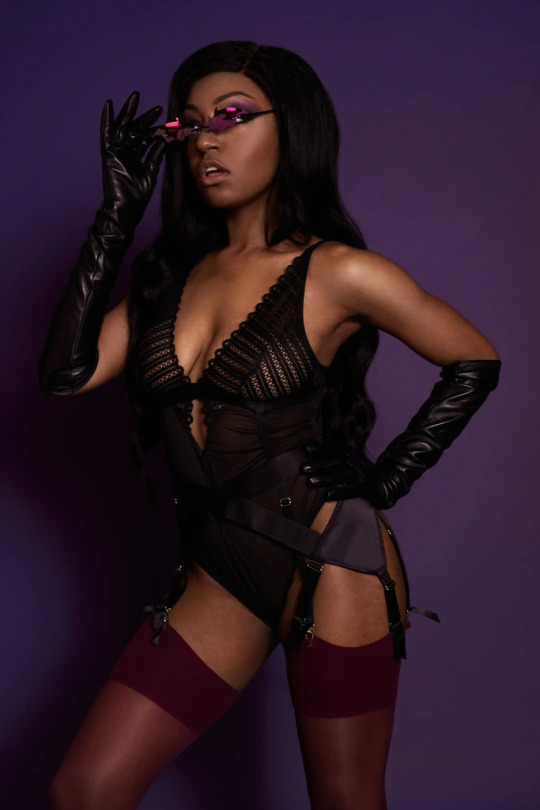
Where do you want to see the Ace community in five years time?
I just hope that we get out of this weird groundhog day that we've been in for like...twenty years. Sometimes it feels like we're making progress, and we are, but at a much slower pace compared to other identities. The way we discuss sexuality has expanded a lot but it hasn't become very inclusive of asexuality yet. The kind of questions that I get as an activist now are strikingly similar to those I saw asexual activists getting in the early 2000s. We're still in a 101 introductory stage as if this orientation is some kind of new fad. I hope that in five years time, we're way past that and asexuality is more normalised. Then we can get into more interesting conversations and incorporate asexuality into how we understand sexuality in general, which will surely benefit everyone.
#yasmin benoit#asexual awareness week#ace week#asexual#asexuality#thisiswhatasexuallookslike#this is what asexual looks like#playful promises#asexual awareness
262 notes
·
View notes
Text
Yasmin Benoit at the ‘Everybody’s Talking About Jamie’ World Premiere at Southbank Centre - 13/09/21

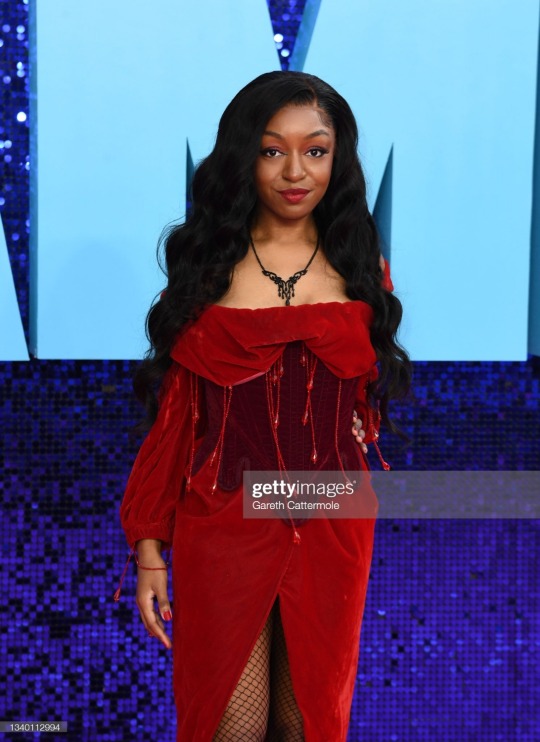
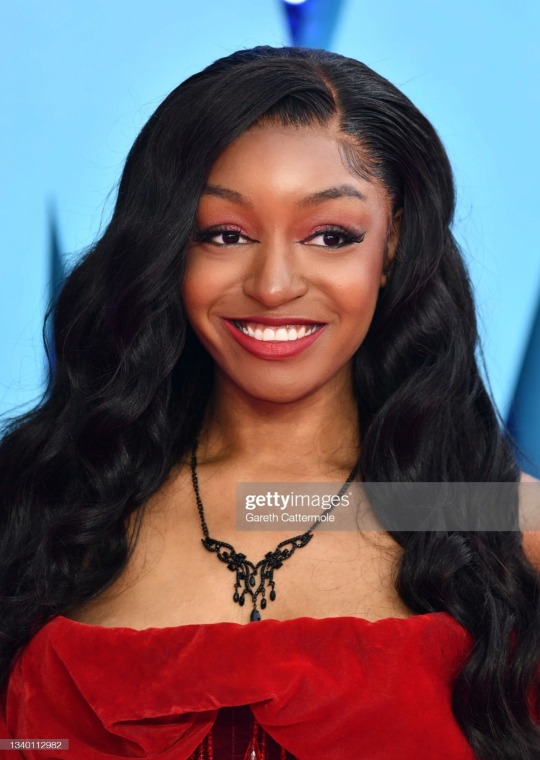
My red (or pink) carpet debut! It was incredible to be invited to the world premiere of Everybody’s Talking About Jamie!
I actually graduated with my Masters degree in this exact same building in 2019. I never expected to return for something like this. I never expected to find myself, or see someone like myself, in this kind of space. I was honoured to have the opportunity to provide some Black aromantic asexual representation for all of those who, like me, have ever felt invisible.
I wanted to serve some gothic vampire glamour because my younger self would have loved to see a Black girl on a 'red' carpet in fishnet tights and platform boots, like the early 2000s rocker girls that inspired me. Thank you all who have continued to follow me on this increasing wild ride and those who helped to make last night so special! ❤
#yasmin benoit#thisiswhatasexuallookslike#this is what asexual looks like#red carpet#asexual#aromantic#asexual pride#gothic fashion
142 notes
·
View notes
Text
Yasmin Benoit Becomes First Aromantic-Asexual Person to Win LGBTQ+ Award

I'm honoured to announce that I'm the winner of an Attitude Pride Award! Not only is this the first time I've won anything in my life, it's the first time an aromantic-asexual activist has won an LGBTQ+ award in this country!
In 2017, I publicly came out as asexual on my social media without really thinking that anyone would care about what I had to say. By the time I finished my Masters degree in 2019, I decided to dedicate myself full time to my activism with no idea of where it would lead or if it would amount to anything other than rendering myself completely unemployable. I've put my safety, sanity, financial security, reputation and relationships on the line to serve the aspec community. What you see on social media is just the seemingly glamorous highlights (and a small glimpse at the downsides), but make no mistake, I'm just a volunteer, not a celebrity with a team behind me.
To have my work recognised by an iconic publication like Attitude Magazine isn't just monumental for me, it's making a powerful statement about inclusion! I dedicate this to the unsung heroes of the aspec community. From the chatroom mods, to the historians, the researchers, the event planners, page runners, meme makers, the flag designers, the advice givers, the stall-runners, the newcomers, the elders and the low-key game changers. And of course, to my mother for the emotional (and financial) support that has made this work do-able!
Thank you to Attitude Magazine and to all for your continued support and for making this school loser feel pretty damn cool. The Summer special edition of the magazine is on newsstands now! Watch my video interview below:
youtube
#thisiswhatasexuallookslike#yasmin benoit#attitude magazine#this is what asexual looks like#asexual#aromantic#pride month#pride 2021#asexuality#asexual awareness#black asexual#lgbtqia
576 notes
·
View notes
Text
Acephobia Experiences
I'm looking to speak to British aces who have experienced any kind of acephobia at their current workplace or in healthcare/public services? If you have this experience, please leave a comment so that I know to contact you directly, or feel free to contact me at [email protected]. Anything you say can/will be kept anonymous.
86 notes
·
View notes
Text
Asexuality in the current June 2021 issue of Attitude Magazine
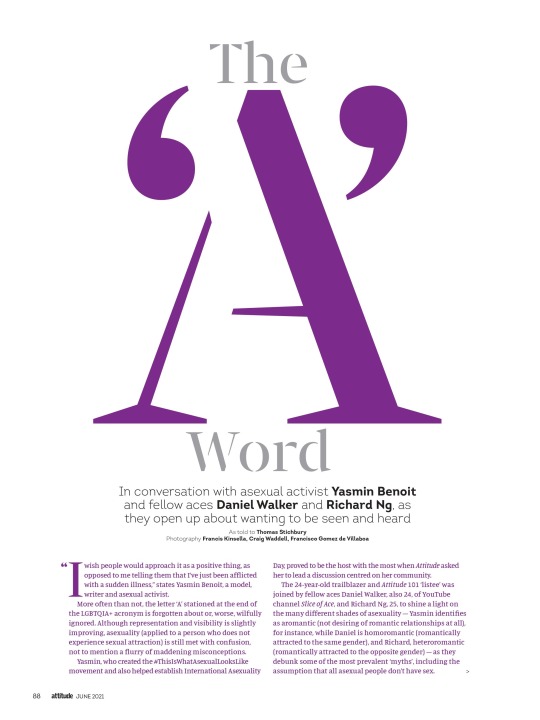
More often than not, the letter ‘A’ hanging out at the end of the LGBTQIA+ acronym is either overlooked or, worse, ignored.
Although representation and visibility is improving, asexuality (applied to a person who does not experience sexual attraction) is still met with confusion.
With that in mind, Attitude asked asexual activist, model and writer Yasmin Benoit to lead a conversation about her community with two other asexuals, Daniel Walker and Richard Ng, in the Attitude Sex & Sexuality issue, out now to download and to order globally.
Shining a light on the different shades of asexuality, the trio unravel the knottiest issues they have had to face – including the most maddening misconceptions...
Yasmin Benoit - 24, asexual and aromantic (not desiring of romantic relationships at all)
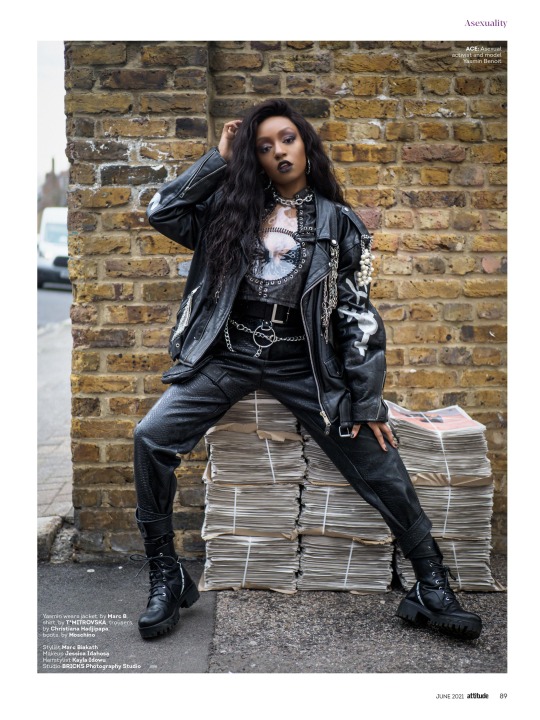
"I have overwhelmingly been met, after I initially came out, with straight-up disbelief... It can get some messy reactions; I’ve had times where I’ll be sitting at someone’s house, drinking a cup of tea, talking about a TV show, and then the next thing you know, I’ve got six people asking me about how often I masturbate and what’s that like.
"I’m like, 'I’m just here to drink a cup of tea, that’s not what we’re doing today'. It invites some very inappropriate, sometimes aggressive, sometimes very uncomfortable reactions.
"Whenever people say to me, 'If you haven’t had sex, you can’t know' – especially if a guy says that, a straight guy – I’m, like, 'Well, how much gay sex did you have before you realised you were straight?' Usually, you quickly find that they didn’t have much gay sex before they determined they were straight.
"Also, when they say you haven’t found the right person yet – there are loads of asexual people who have found the right person and they’re still asexual; they’re in love with the person, they have a family with the person, they’re in a platonic relationship, they’re soulmates."
Daniel Walker - 24, asexual and homoromantic (romantically by not sexually attracted to the same gender)
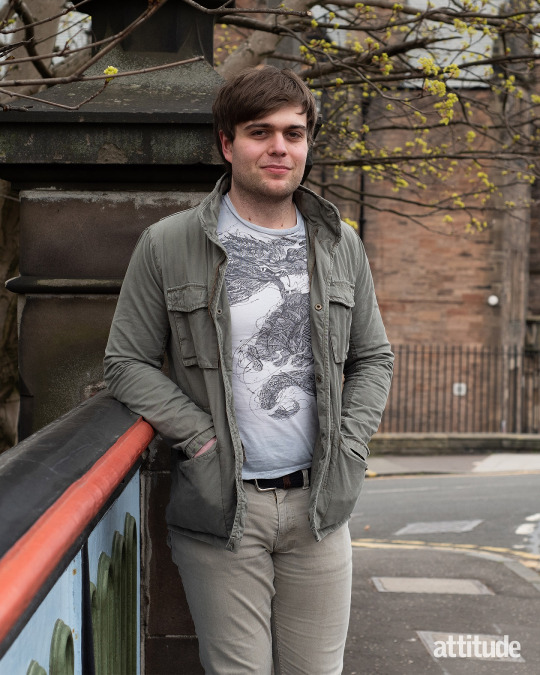
"I definitely see people assuming it’s a mental health issue, or you’re depressed, that’s what’s causing your asexuality. Or even in some extreme cases, that when they find out someone is asexual, they assume someone must have been traumatised.
"What I have seen quite a lot recently is the misconception that asexuality means that the person is inherently non-sexual.
"What I mean by that is, asexuality is defined by a lack of sexual attraction, but that is completely separate from a lot of other things which are sexual; for example, having sex or masturbating or watching porn or even dressing in a way that society would see as sexual.
"People assume that if you’re asexual, you must completely desexualise your appearance, and you can’t masturbate and you can’t watch porn, whereas I feel like – I don’t know, it’s not a standard other orientations are held to."
Richard Ng - 25, asexual and heteroromantic (romantically but not sexually attracted to the opposite gender)
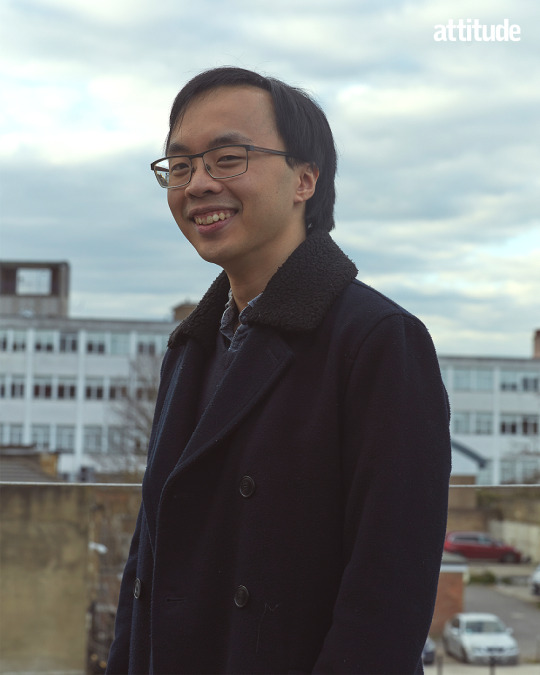
"For me, the biggest [misconception] is this idea of, 'You couldn’t possibly know that you’re asexual, because sex is a good thing and if you had experienced it…'
"There’s lots of things in that: Firstly, equating sexual orientation with sexual activity: I personally don’t engage in sexual activity, but obviously some asexual people do… If I say I’m asexual, they’ll refuse to accept it because, as it happens, I’m a virgin, I’ve never had sex, and they will read into that 'Oh well, you are naive about this, you couldn’t possibly know that you’re asexual, you’ve just not met the right person'.
"My parents are actually GPs and when I first came out to them, I can’t remember exactly how, but there was this sort of like, 'Maybe you need to see someone about this'. I don’t know, latent testosterone or something like that."
Read the full feature in the Attitude Sex & Sexuality issue, out now to download and to order globally.
Subscribe digitally to the Attitude mobile and tablet edition for just over £1 per issue (limited time only).
#yasmin benoit#slice of ace#daniel walker#asexuality#attitude magazine#thisiswhatasexuallookslike#this is what asexual looks like#asexual awareness#aromantic#homoromantic#ace discourse#heteroromantic
634 notes
·
View notes
Video
youtube
IT’S OFFICIAL, I’M A TEDX SPEAKER!
I’m incredibly grateful for the opportunity to discuss asexual representation in the media on such an esteemed platform. Thank you to everyone, particularly Adam Key, who made this possible in a national lockdown. I hope you like it. I’ve been waiting a while to say this... Thank you for listening to my TED Talk!
#yasmin benoit#ted talk#tedx#tedxtalks#asexuality#asexual#asexual awareness#asexual representation#thisiswhatasexuallookslike#this is what asexual looks like#acephobia#ace discourse
253 notes
·
View notes
Text
Yasmin Benoit for Glamour Magazine: “People think I must be unlovable, fussy or mentally ill. Here's what it really means to be asexual and aromantic.”
Activist and model Yasmin Benoit dispels the myths around asexuality, 'the invisible orientation'.
The conversation around sexuality and the spectrum of gender identity has expanded greatly in recent years. We're finally beginning to explore all of the details, nuances and diversity of the topic, and acknowledging communities that have too long been shunned by society. But there's one community – my community – that has been left out of this step toward inclusivity.
I started to realise I was asexual around the time my peers around me realised they weren't. Puberty kicked in, hormones went flying, kids stopped wanting to just play together and started fancying each other instead. They became a lot more curious about their sexuality and wanted to express it.
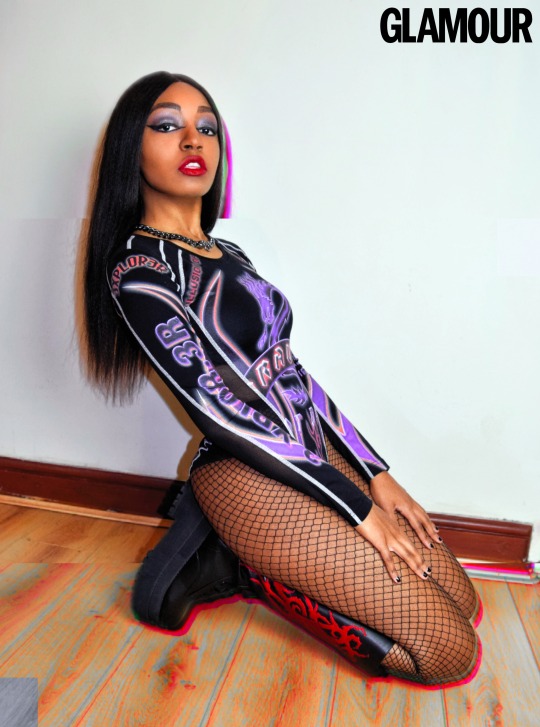
But I just wasn't feeling it; I didn't get all the drama. In fact, I even switched to an all-girls' school because I thought, without boys, everyone would stop caring so much about sex and relationships, and would just chill out. Yeah, I was very wrong.
In secondary school, it became even more obvious that I wasn't feeling the same as the other teenagers – and they didn't like it. They started quizzing me constantly about why I felt the way I did.
"Are you gay?", "Is it a mental disorder?", "Is there something wrong with your genitals?", "Did you get molested as a child?", "You're probably just underdeveloped or a late bloomer?", "Surely you're just being too picky?", "You must just be unlovable or unattractive to everyone?"
My physical and mental health was up for debate. But back then, at 15, I didn't really have an answer. That's when one of my classmates said, "Maybe you're asexual or something." I'd only really heard the word 'asexual' used about organisms in biology class, not in the context of human sexuality.
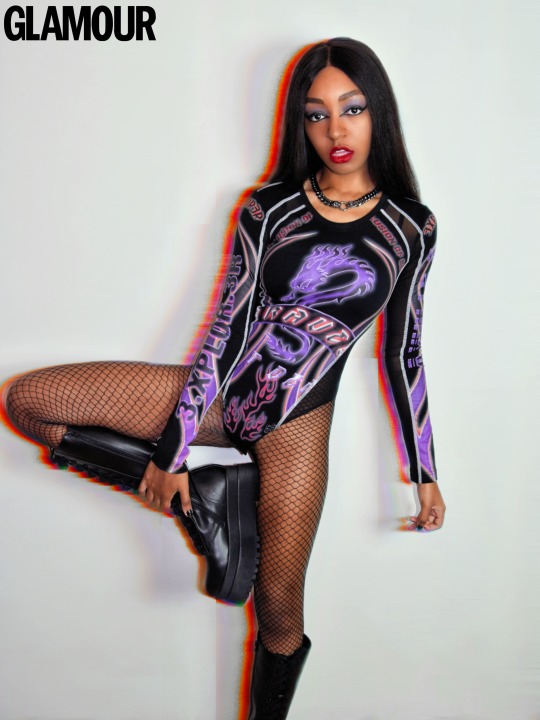
So I Googled it and thought it sounded like me, but at the time, there was so much disinformation online that I wasn't 100% sure. Besides, when everybody keeps telling you there must be something wrong with you, after a while, you start to wonder if they're right. You begin to doubt yourself, to question your own life experiences, your own thoughts and identity.
It wasn't until I started talking to other asexual people – strangers online whose experiences, finally, reflected my own – that I started to realise I wasn't alone. This wasn't some sort of grand turning point though. It would take a number of years to stop doubting myself and my identity; a natural consequence of being pathologised and gaslighted for so long. Through launching my activism career to raise awareness of asexuality and aromanticism on my platform, I met an entire population of people like me. I attended the UK Asexuality Conference in 2018 and was greeted by hundreds of people who showed me the true diversity of the ace community.
There are asexual people who, like me, experience little to no levels of sexual attraction, and have no sexual or romantic – that's the 'aromantic' part – desire towards other people. But I learnt that there are a lot of asexual people who still experience romantic attraction and vice versa. I know many married asexual people, and aromantic sexual people – I'm sure we all know someone who's not really into dating or relationships, but still loves sex! I know people in our community who are parents, grandparents, husbands, wives, young, old, Black, white – and they are proud of who they are.
The problem is, those stereotypes and toxic misconceptions I heard as a 15-year-old from my classmates at school? I still hear them today. We live in a society obsessed with relationships; where to love and be loved by another person is not only the ultimate aspiration, but the expectation.
Until asexuality becomes part of public discourse and representation, we will continue to be misunderstood, told that there's something wrong with us, overlooked in education and legislation, and medicalised (and medicated). Women like me will continue to be dismissed as unlovable, ugly, frigid and boring. This is especially true for Black women, who are so hypersexualised, that to be a Black asexual woman seems entirely contradictory to people.
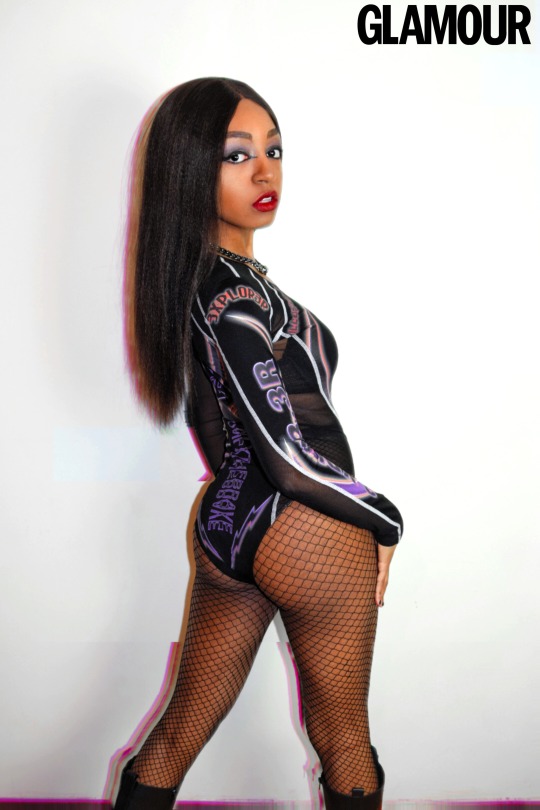
But I live a perfectly happy and fulfilled life as a Black asexual, aromantic woman. I don't need a partner to complete me – I'm complete just the way I am. That's why I use my platform to fight against asexuality stigma, dispel myths and help empower the ace community.
For allies, as always, the first step to show your support is by educating yourself, and to start normalising asexuality by including it in your conversations. That way, conversations around sexuality will inevitably become more inclusive and comfortable for the ace community. Asexual people will – finally – begin to feel seen.
We deserve to be seen.
Yasmin is the co-founder of International Asexuality Day, taking place this year on 6th April. Found out more internationalasexualityday.org.
Follow Yasmin on Instagram and Twitter.
https://www.glamourmagazine.co.uk/article/asexuality-and-aromanticism
#yasmin benoit#glamour magazine#asexual#aromantic#asexual awareness#thisiswhatasexuallookslike#this is what asexual looks like#asexuality#zalando#diesel#black model#black asexual#aromantic pride#alternative black girl#alternative model#alternative fashion#editorial#acephobia#aphobia
419 notes
·
View notes
Text
“A Romantic Partner Won’t Complete Me, Because I Was Born Complete”: How Identifying As Asexual & Aromantic Brought Me True Freedom & Happiness | Yasmin Benoit for British Vogue
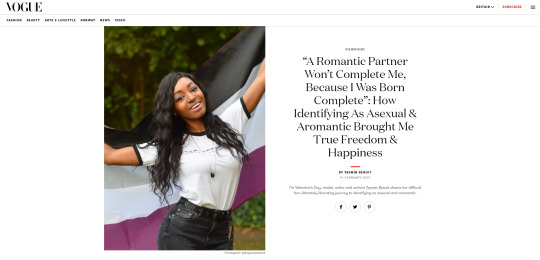
There is a phase in our lives where everyone seems asexual and almost everyone seems aromantic. It wasn't until puberty kicked in that platonic relationships seemed to take a backseat. My peers stopped wanting to play together and started wanting to 'date' each other. That was when I started to realise that there was something different about me. I didn’t seem to be experiencing the same urges as those I was around. I chose to go to an all girls school in the hopes that – in the absence of boys – everyone would stop caring about sex and dating. It actually had the opposite effect. There was a sense of deprivation in the air and the heightened desire to project their sexuality onto anything and everything.
Therefore, my lack of interest became even more obvious, and it became a not-so-fun game to work out the source of what should be troubling me, but hadn’t been until that point. Having a sexual orientation isn’t just natural, it’s essential. It’s part of being a fully-functional human being. And to be romantically love and be loved by another is the ultimate goal. It’s part of being normal, which made me both abnormal and puzzling. When your asexual, people think there’s something wrong with your body. When you’re aromantic, they think there’s something wrong with your soul. Even for a teenage girl who internalised all of Disney Channel’s “be yourself” messages, it’s never nice to have people publicly debate your supposed physical and psychological flaws.
My nickname in school was “hollow and emotionless.” I was a joker with a decent amount of friends, but I was lacking something crucial, the kind of love that really mattered and the kind of lust that made life exciting...so I was practically Lord Voldemort with braids. I sat through the regular DIY sexuality tests, having my peers show me graphic sexual imagery, have very sexual conversations in my presence, and ask me inappropriately intimate questions to gauge how far gone I truly was. These tests lead to the development of theories, most centred around me having some kind of mental problem. After a while, you start to wonder if everyone knows something you don’t.
When they said that I must have been molested as a child and “broken” by the trauma, I wondered if I had somehow forgotten about sexual abuse that actually hadn’t happened. I looked at some of my own relatives with suspicion, the same people who would later ask me if I didn’t experience sexual attraction because I was a pedophile. It was suggested that I was “suffering” from my “issues” because I was socially anxious and insecure. The suggestion that my ‘issue’ was pathological stayed with me for a long time, but not as much as the widely accepted theory that I was mentally slow. Unfortunately, that one stuck. I was referred to as “stupid” and I started to believe that was the case. It would impact my experience in education for the next eight years, long after I realised that there was a word for what I was.
Asexual.
I first heard the word during one of the near-daily sexuality tests that I was subjected to. I was asked if I was gay, to which I said that I wasn’t interested in anybody like that – men or women. At fifteen, I was asked, “Maybe you’re asexual or something?” but it wasn’t quite a lightbulb moment. How could it be when I had never heard the word outside of biology class? After an evening of Google searching, I realised that there were many people with my exact same experience, complete strangers whose stories sounded so strangely similar to mine. I also stumbled across the word ‘aromantic,’ but at the time, I didn’t understand the need for it. "Wouldn't all asexual people be aromantic? A romantic relationship without sex is just friendship with rules,” I thought.
Either way, my discoveries showed me that I wasn’t alone, but that only half helpful. I now had an identity that no one had heard of or understood. Most didn’t believe that being asexual or aromantic was a real thing, and I doubted it to. I had been taught to after years of armchair pathologisation. If asexuality was real, why did no one tell you that being sexually attracted to nobody was an option? What if it was just an internet identity made up to comfort people with all of the issues that had been attributed to me? I didn’t have to go far down the rabbit hole to realise that asexuality, like many non-heteronormative identities, had been medicalised. What I had experienced as just the tip of the iceberg. As someone who hadn’t been prescribed drugs I didn’t need or subjected to unnecessary hormone tests, I was one of the lucky ones.
My activism would be my gateway to the community. Despite being the ugly friend at school, I ended up becoming a model while in university. I decided to use the platform I had gained through my career to raise awareness for asexuality and aromanticism. It gave me the opportunity to encounter a range of asexual and aromantic offline, it was then that I learned the significance of having an aromantic identity. There are many asexual people who still feel romantic attraction, as well as aromantic people who still feel sexual attraction. They have their own range of experiences, their own culture, their own flag, and like the asexual community, I was relieved to see that they are just normal people. These intersecting communities are not stereotypes. They weren’t just thirteen year old, pink haired kids making up identities on Tumblr to feel special. They were parents, lawyers, academics, husbands, girlfriends, artists, black, white, young, old, with differing feelings towards the many complex elements of sexuality and intimacy. Most importantly, they were happy.
I am proud to be part of both, and I know that while being asexual and aromantic, I am a complete person and I can live a perfectly fulfilling life. Since meeting members of my communities, I’ve become more open about my identities in real life, and a reaction I’m often met with is sympathy. “You must feel like you’re missing out,” “I can’t imagine being like that,” “It must be hard for your family,” “Do you worry no one will want you?” “How do you handle being so lonely?” “You’re so brave and strong,” “What will you do with your life now?” Even in 2021, a woman who isn’t romantically loved or sexually desired by their “special someone” is perceived as being afflicted with some kind of life-limiting condition.
Asexuality doesn't make undesirable or unable to desire others. It is a unique experience of sexuality, not a deprivation from it. Even if it was, there is so much more to life than what turns us on and what we do about it. Romantic love is just one form of love, neither superior nor inferior to any other. Being aromantic doesn't mean that you can't love or be loved, it does not mean you are void of other emotions or capabilities. I am not lonely with my friends, family, co-workers and supporters. I feel confident not when someone wants to date me but when I meet my goals and form worthwhile connections with others. My success isn't determined by whether someone will want to marry me someday. What we want out of life is our decision alone, our sources of happiness should not be defined by our ever-changing, culturally relative social standards. The love of a romantic partner won't complete me because I was born complete. Feeling sexual attraction to others won't liberate me because my liberation is not dependent on other people.
Valentine's Day is on the horizon. It's an occasion that amps up the focus on (and the pressure to achieve) a very specific type of love and sexual expression, one that is actually alienating for people inside and outside of the asexual community. During a pandemic where many relationships have been strained, tested, formed or distanced, it's important to keep the diversity of romantic and sexual feelings in mind. Many expect me to feel annoyed or lonely during this time of year, but I actually feel empowered and excited by the way sex, romance and love are discussed more deeply around this time. These conversations are constantly expanding to become more inclusive for everyone, and that's what we need to see all year round.
https://www.vogue.co.uk/arts-and-lifestyle/article/asexuality-and-aromanticism
#yasmin benoit#valentines day#british vogue#asexuality#aromantic#aromanticism#aroace#asexual#this is what asexual looks like#thisiswhatasexuallookslike
673 notes
·
View notes
Text
International Asexuality Day (April 6)
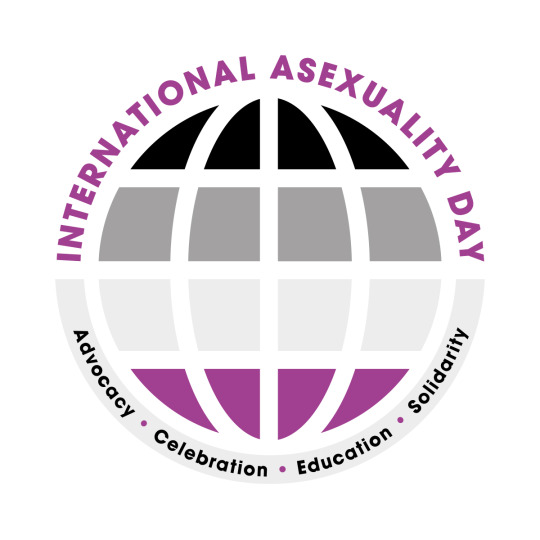
WE HAVE AN OFFICIAL DAY! April 6 will be the first ever International Asexuality Day!
I'm so pleased to finally announce the birth of this amazing occasion. Myself and many other activists and ace organisations from across the world - have been working together on this for almost a year! I'm proud of what we have managed to accomplish.
The day is designed to complement other ace events like Ace Week (the last week in October), but with a special emphasis on the international community, going beyond the English-speaking and Western sphere that has so far had the most coverage. The day can also serve as a focal point for giving asexuality some visibility in the first half of the year, useful for countries for which the end of October (Ace Week) is a difficult time of year for ace advocacy.
To find out more information, please check out @iadofficial, the official website internationalasexualityday.org, or click the link in my bio! Let's spread the word far and wide in preparation for April 6! 💜
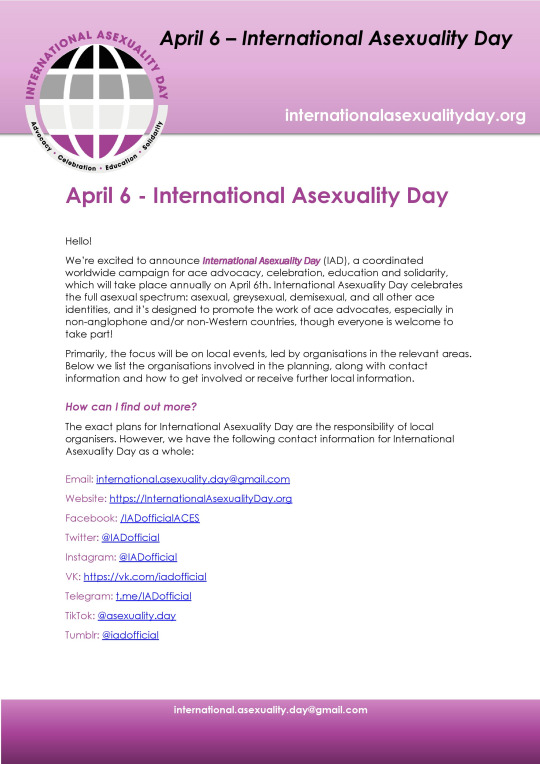
#international asexuality day#asexuality#asexual#asexual pr#asexual awareness#yasmin benoit#aven#this is what asexual looks like
5K notes
·
View notes
Text
The Future: Yasmin Benoit in Attitude Magazine (Feb 2021)
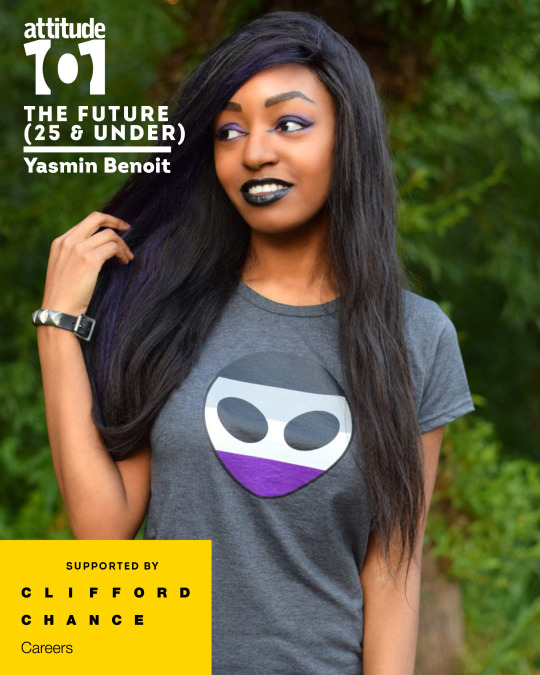
We are the future! I'm honoured to be included in Attitude Magazine's first ever #Attitude101 influential figure list as a trailblazer in their The Future (25 & Under) category!
After such a crazy year, it’s amazing to have my work recognised like this. To be mentioned on the same list as incredibly accomplished people like Pete Buttigieg, Russell T Davies, Elliot Pages, Edward Ennifel OBE and so many others is so humbling. This is the kind of energy we're going to carry into 2021 - asexual and aromantic inclusion in the LGBTQ+ community and beyond!
Thank you all for your continued support throughout this wild ride. You can find me in their February 2021 issue, which is available now on newstands and to buy online! I'll be heading out to get my copy soon. 💜
Happy New Year! ✨
#ThisIsWhatAsexualLooksLike#attitudemagazine#asexual#aromantic#asexualpride#asexuality#asexualawareness#Yasmin benoit#Attitude 101
107 notes
·
View notes
Text
Yasmin Benoit in Cosmopolitan: “I’m the Unlikely Face of Asexuality”
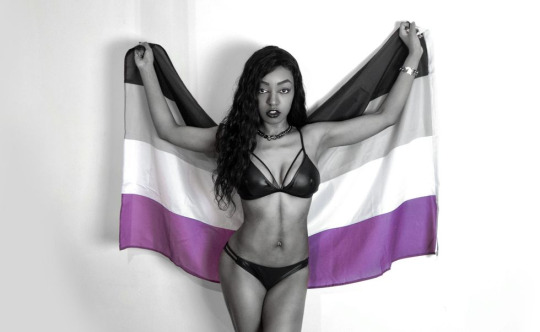
I was 10 years old when I started to wonder if there was something wrong with me. I realised I was asexual around the same time as my peers realised they weren’t. In late primary school, the boys and girls didn't want to play together anymore - they 'fancied' and wanted to 'go out' with each other. I watched girls fighting over boy drama in the cafeteria and wondered what had gotten into everyone.
That’s when I decided I’d attend an all girls’ school under the naive belief that, in the absence of boys, none of the girls would care about sex or dating. I quickly discovered that a same-sex environment had the opposite effect.
By the time I was a teenager, my peers started to wonder what was wrong with me. The sexual frustration was turned up to 100, which made it all the more obvious that I wasn't reacting the same way as the other teens. While their sexuality was directed towards any nearby boy, a poster of a boy, or even each other, mine wasn't directed anywhere. And other people wanted to work out why that was more than I did.
Before believing that it was just my innate sexuality, it was easier to assume that I was gay and in denial. Maybe I was molested as a kid and I’d forgotten about it, but been left with psychological scars. I could be hiding a hidden perversion – my dad asked me whether I was into inanimate objects or children when I told him that I wasn’t attracted to men or women. I might be a psychopath, unable to empathise with people enough to deem them attractive. The theory that held the most weight was that I was 'mentally stunted', and I was treated as such. I started to wonder if they were right.
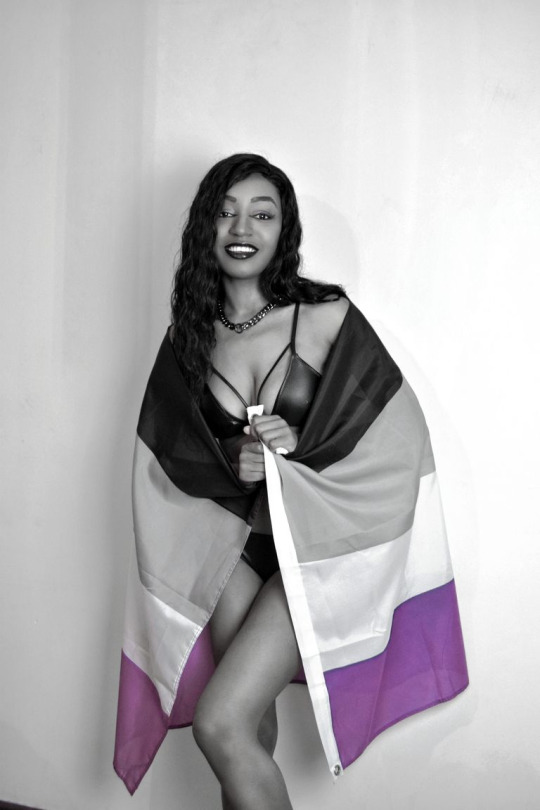
At 15, I learned the word asexual. It was during yet another analysis session of my sexuality at school. I described myself as not being attracted to men or women for the thousandth time, and someone suggested I might be “asexual or something.” With a quick Google search, I realised I wasn’t alone. Asexuality is a term used to describe those who experience a lack of sexual attraction and/or low levels of sexual desire towards others.
It wasn’t a mental or physical disorder, or a personality flaw, or anything related to my appearance or my life experiences. It wasn’t the same as being celibate, or anti-sex, or just being a ‘late bloomer.’ It was a legitimate sexual orientation characterised purely by a lack of sexual attraction or desire, meaning that it had no implications on whether an asexual could masturbate, or actually enjoy sex, or have children, or be in a romantic relationship. There were no limitations, just a way to bring a lot of people under one united umbrella.
I had finally found an answer to everyone’s question... only, no one else knew what the hell I was talking about. Unfortunately, that didn’t stop them from spewing the same ignorant views I had been hearing for years.
To an extent, I can’t blame them. It’s been almost 10 years since I discovered the term and it is barely part of public consciousness. It isn’t included in sex education or any conversations about sexuality. We’re left out of policies, pathologised in psychiatry and there is next-to-no representation for asexual people in the media. You can count positive examples on one hand. Most of the time, asexuality is either a fleeting reference, the butt of a joke, or a trait in a character that’s either an alien, robotic, or evil – a manifestation of their lack of empathy. Think your Sheldon Cooper, your Data from Star Trek, your Lord Voldemort.
Especially for women, it's seen as a symptom of their prudishness, unattractiveness or overall blandness, which needs to be resolved by the end of the plot so they can be complete, appealing, lovable people. After all, being virginal is a good thing, perpetual sexual unavailability is not, particularly when you need a loving sexual relationship to be whole. Even our non-fiction portrayals tend to conform to stereotypes and perpetuate a ‘woe is them’ narrative. And among all of these things, they’re probably white, occasionally East Asian, but never Black. Black people are hypersexualised to the point where that would become contradictory and confusing for the audience. And that’s what I would end up being.
When I first mentioned on social media that I was asexual, I had no intention of becoming a voice for the asexual community. It seemed too unlikely to contemplate. After all, I was a Black gothic student from Berkshire who got sat on at school because I was that invisible. On top of that, my work as an alternative lingerie model meant I was far from the girl/boy-next-door like the asexual activists who had come before me. But, apparently, that's what the community wanted. From there, my activism took off.
I quickly found myself becoming one of the community's most prominent - but unlikely - faces. I used my platform to raise awareness for asexuality, empower asexual people, dispel misconceptions and promote our inclusion in spaces we've traditionally been left out of. From incorporating asexuality into lingerie campaigns, speaking at government institutions, being the first openly asexual person to appear on LGBTQ+ magazine covers, and opening asexual spaces, my work has been intersectional if not a little controversial.
I had never experienced hatred online like I have since speaking openly about asexuality. Only through my work did I become aware of acephobia and the exclusionary discourse surrounding what at first seems like an inoffensive and discreet orientation. It’s shown me how important asexuality activism is, and it’s made me aware of just how diverse, powerful and unique the asexual community is. How they stand up for the rights of others even when we’re ignored ourselves, how they’ll never let their invisibility stop them from developing their own unique culture, history, and progressive understanding of human sexuality and love.
This week is Asexual Awareness Week, an occasion founded by Sara Beth Brooks a decade ago. It’s one of the few times in the year that the community demands to be seen and people start looking.
Don’t miss us, we have a lot to show you.
#yasmin benoit#ace week 2020#asexual awareness week#ace week#cosmopolitan#asexuality#asexual#asexual pride#aromantic#ace discourse#acephobia#this is what asexual looks like#asexual awareness
2K notes
·
View notes
Text
What Is Asexuality? Yasmin Benoit for Teen Vogue
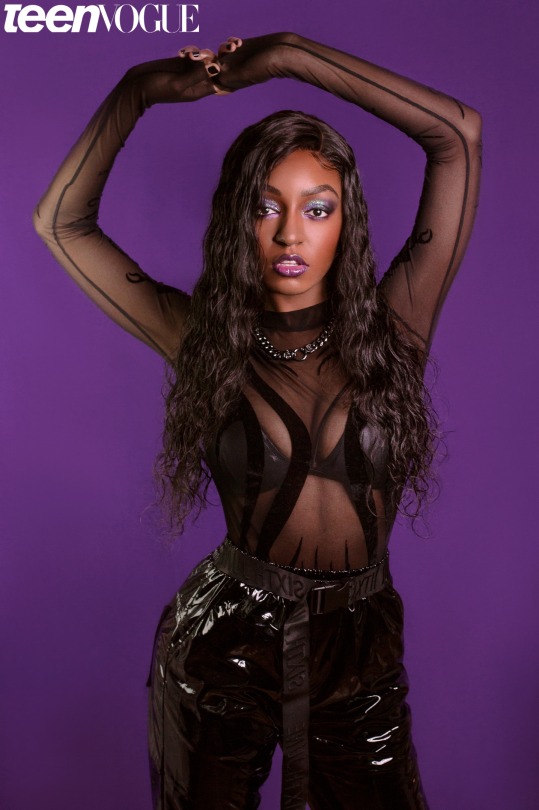
For Asexuality Awareness Week, model Yasmin Benoit answers the question ‘what is asexuality’, and busts some common myths about what it means to be asexual.
I realized I was asexual around the same time my peers seemed to realize that they were not. Once the hormones kicked in, so did a nearly universal interest in sex for those around me. I thought sex was intriguing, but never so much that I wanted to express my sexuality with someone else. I had no sexual desire towards other people, I did not experience sexual attraction, and that hasn't changed.
I didn't learn that there was a word for my sexuality until I was 15, after being interrogated for the millionth time at school about my orientation, or lack of it. After doing some Googling as soon as I got home, I realized for the first time in my life that I might not be broken, that I wasn't alone in my experience, and that it wasn't a defect I had somehow brought on myself. I had spent the entirety of my adolescent life trying to answer people's invasive questions without having the language to explain that I was just an asexual girl.
But even after I found the language, I had only solved half of the problem. We are taught in grade school that we'll become sexually interested in others, but never that not being sexually attracted to anyone is an option. Because we're not taught about it, no one else knew what I was talking about when I tried to come out to them as asexual.
Many don't believe asexuality is real, and that makes the experience of navigating our heteronormative, hyper-sexualized society as an asexual person even harder. I've spent my life battling misconceptions about it and so have many other asexual people. Now, I try to use my work as a model and activist to raise awareness and change the way our society perceives asexuality and asexual people. This Asexual Awareness Week, I'm busting some of those myths about my orientation.
Now, let's separate fact from fiction:
Myth: Asexual people have no sexuality ✘
Truth: Asexuality is considered a sexuality, just like bisexuality, heterosexuality, and homosexuality. I often phrase it as being a sexual orientation where your sexuality isn’t oriented anywhere—because it isn't actually the same as having no sexuality or sexual feelings. Asexual people have hormones like everyone else. It isn’t uncommon for asexual people to masturbate and there are asexual people who still have sex for various reasons and gain enjoyment from it. Some asexual people are romantically attracted to others, but not sexually attracted. Since asexuality is a spectrum, the ways in which asexuality is experienced can vary in different ways.
Myth: Asexuality is a lifestyle choice ✘
Truth: This misconception stems from the idea that asexuality is a choice and not a legitimate sexual orientation. Asexuality is often confused with celibacy or abstinence, probably because they can manifest in similar ways. In contemporary society, celibacy is often defined as being sexually abstinent, often for religious reasons. Sure, for many asexual people, their asexuality means that they aren’t interested in having sex with other people, but that’s a result of their orientation—not their beliefs about sexual behavior. Celibacy is a lifestyle choice, asexuality is not. Asexuality also shouldn't be confused with being an incel. People don't decide to become asexual because they can't find sexual partners or because of any other circumstances. It isn't a state of being when you're going through a "dry spell," nor is it a choice any more than being gay or straight is a choice. It's just the way we are.\
Myth: Asexuality is an illness ✘
Truth: The assertion that asexuality is a mental or physical disorder is incredibly harmful to asexual people and has led to false diagnoses, unnecessary medication, and attempts at converting asexual people. For example, Female Sexual Interest/Arousal Disorder and Hypoactive Sexual Desire Disorder — which are characterized by low or absent sex drive — are in the DSM-5 and have been thought of as a medical diagnosis for asexuality. But the difference is that people who have HSDD are bothered by their lack of sexual drive, while asexual people are not. But even the inclusion of HSDD as a diagnosis is controversial — some argue that people who are asexual might feel distress at their lack of sexual desire because of lack of acceptance in society. Asexuality is not the result of a hormone deficiency, or a syndrome, or a physical or psychological ailment. Research has said as much. We don't need to be treated or fixed.
Myth: Asexual people have anti-sex attitudes ✘
Truth: There are asexual people who are repulsed by the thought of sex, or by the thought of having sex themselves. I fall into the latter category. However, that feeling does not necessarily extend to what other people are doing. The misconception that asexual people are against other people expressing their sexuality, and that all asexual people can’t stomach conversations about sex, is quite an alienating one. It leads to asexual people being left out of important discussions about sexuality. It is entirely possible and incredibly common to have sex-positive attitudes and be asexual.
Myth: There are barely any asexual people ✘
Truth: Don't let our lack of visibility and representation fool you. There are a lot of asexual people out there, but many of us aren't entirely out, and some haven't realized that there's a word for what they're experiencing due to that lack of visibility. While research into the asexual population is lacking, its estimated that around 1% of the population is asexual—but that's based on a studies where the participants have likely known what asexuality was and been out enough to identify that way. It's likely there are more asexual people than we know of, but even if we did only comprise 1% of the population, that's still tens of millions of asexual people.
Myth: Asexual people just haven’t found the right person yet ✘
Truth: The idea that asexual people just need to meet the ‘right person’ who will unlock their sexual desire and ‘fix’ their asexuality is one I’ve always found quite perplexing. It’s an argument that seems to be applied to asexuality more than other orientations. You wouldn’t tell a straight guy that they just “hadn’t met the right man yet" as an explanation of why he's attracted to women. I’d like to think that most wouldn’t tell a gay man that they “hadn’t met the right woman yet” either. It suggests that our sexuality is reflective of our company, that no one we have ever seen or encountered has met our standards, and thus we haven’t experienced sexual attraction to the extent that the term ‘asexual’ could be applied.
This assumption ignores and invalidates all of the asexual people who have found the ‘right’ person—the asexual people in happy, fulfilling, loving relationships or who have had them in the past. Because, yes, asexual people can still have romantic relationships, or any other kind of relationship. The validity of a relationship is not and should not be based on how sexually attracted you are to that person. This statement also plays into the notion that asexual people are “missing out” on something and haven’t truly discovered our entire selves, that we are incomplete because of our innate characteristics or our life experiences. This isn’t true either.\
Myth: There’s an asexual demographic ✘
Truth: Even though most people don’t know much about asexuality, they still have quite a specific idea about what asexual people are like. I’ve often heard that, as a black woman and a model, I don’t look or seem asexual. We’re stereotyped as being awkward white kids who spend too much time on social media and probably aren’t attractive enough to find a sexual partner if we wanted to. And if we are attractive enough, then we should tone that down as not to ‘give mixed signals.’ But there is no asexual way to look or dress. Asexual people have varying ages, backgrounds, interests, appearances, and experiences, just like those belonging to any other sexual orientation. So please don't use the term "asexual" as an adjective to describe someone you think is sexually unappealing or as an insult, because that's only perpetuating this harmful stereotype.
Makeup: Margherita Lascala
Photography: Becky Gannon
Hair: Kayla Idowu
Styling: Diesel, Cheimsee, Sixth June, Northskull, Lamoda
#yasmin benoit#asexuality#ace week#ace week 2020#asexual awareness week#asexual#aromantic#lgbt#pride#asexual pride#this is what asexual looks like#lgbtqia#lgbtqa#acephobia#aphobia#alternative black girl#alternative model#black model
2K notes
·
View notes
Text
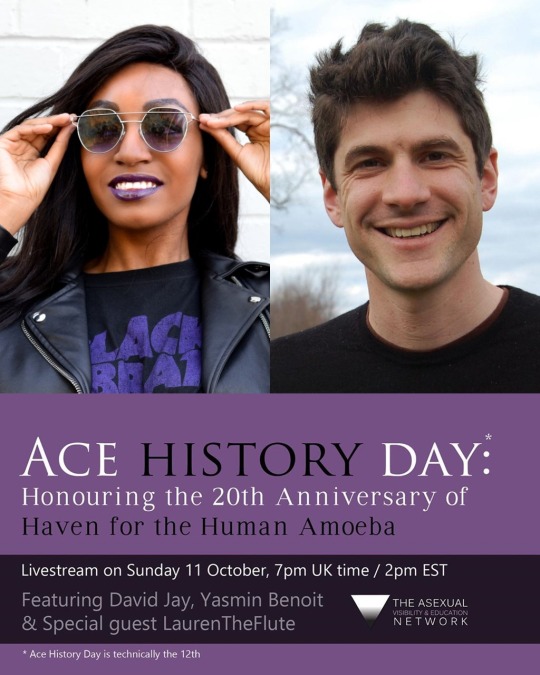
Tomorrow I am hosting a livestream YouTube event with @aven.pt celebrate #AceHistoryDay! We will be honouring the 20th Anniversary of Haven for the Human Amoeba, the first online ace community and the predecessor of AVEN! Tomorrow I am hosting a livestream YouTube event with @aven.pt celebrate #AceHistoryDay! We will be honouring the 20th Anniversary of Haven for the Human Amoeba, the first online ace community and the predecessor of AVEN!
Tomorrow I am hosting a livestream YouTube event with @aven.pt celebrate #AceHistoryDay! We will be honouring the 20th Anniversary of Haven for the Human Amoeba, the first online ace community and the predecessor of AVEN!
I'll be speaking to David Jay (AVEN's founder), Lauren The Flute, and Samantha, who were around in the earliest days of the online ace community in the 2000s. We'll be talking about who introduced the split attraction model to the community, the birth of the term asexual, early exclusionism, activism past and present, and many other things!
Register for the livestream using the link below so you get all of the necessary information! Can't wait to see you there. 💜🖤
https://forms.gle/3A9sRAnQXD3e7vZZ9
#Asexual history day#Ace History day#Asexual awareness#Asexuality#Asexual#Yasmin benoit#David jay#This is what asexual looks like#Aven#Asexual visibility and education network
67 notes
·
View notes
Text
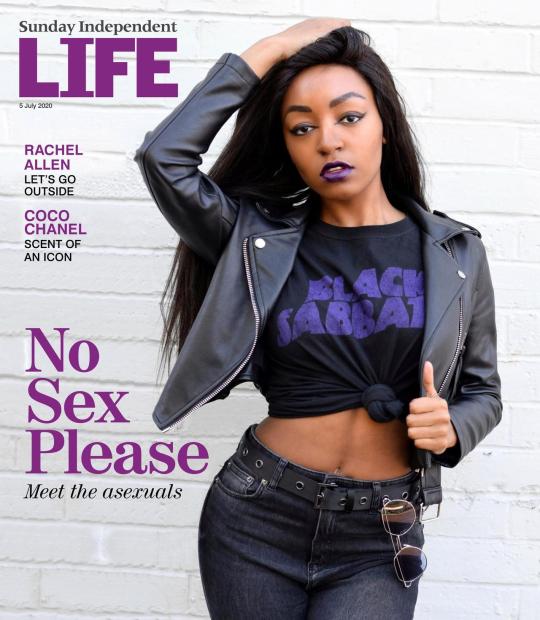
Asexuals in Ireland! Look out for this edition of The Sunday Independent Life while you can! There is a brilliant, comprehensive article on asexuality in there featuring a range of asexual voices and research, written by Yvonne Hogan!
#ThisIsWhatAsexualLooksLike 💜
#This is what asexual looks like#Yasmin benoit#Asexual#Asexuality#Pride#Asexual pride#Asexual awareness#LGBTQIA#Aromantic
354 notes
·
View notes
Text
YASMIN BENOIT IN BRICKS MAGAZINE JUNE 2020 ISSUE
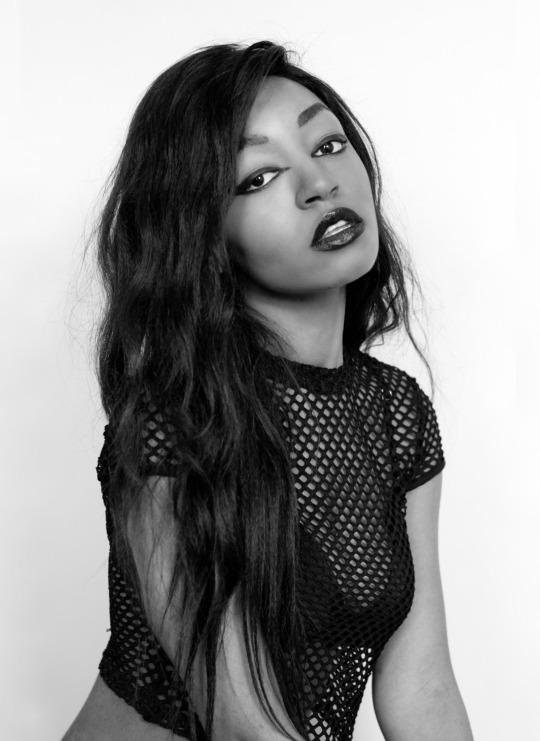
Meet Yasmin Benoit, the activist vocal on the visibility of asexuality, aromanticism, and of LGBTQ+ people of colour.Can you tell us about who you are and what you do?
I’m a model and aromantic-asexuality activist from Reading, England. I entered the fashion industry with the goal of providing more diversity, then I decided to use the platform I had gained from modelling to raise awareness for asexuality and aromanticism. Since finishing my Master’s degree, that’s been my main focus.
You started the #ThisIsWhatAsexualLooksLike which has broadened people’s understanding of asexuality, why was this something you felt inspired to do and how have things changed since you started the campaign?
I was inspired to do it because I felt like more people needed to be doing it. The outcome of the asexual community’s invisibility was staring me in the face my entire life. I was often told that I don’t “look asexual,” because I’m not what people picture when their understanding of asexual people comes from stereotypes. #ThisIsWhatAsexualLooksLike came as a direct response to that unfortunately common idea.
I wanted to dispel the misconception that there’s an asexual way to look or dress, that there’s an asexual type or demographic. “Asexual” looks like me, or anyone else in our diverse community. I think the campaign introduced quite a lot of people to my work and played a part in people seeing me as an asexual representative of sorts. Every time I see asexual people using the hashtag and feeling empowered by it, it warms my heart.
A lot of the discussions about sexuality often leave out asexual identities, why do you think this is?
I’ve been trying to work that out for a while. There’s no clear, good or justifiable reason for it at this point in time. It seems like such an obvious thing to include. I’d say that it’s because it isn’t included in mainstream culture in general, but that’s a ‘chicken or the egg’ situation. At present, I think some people don’t want to go there just yet. They think that if they’re talking about anything that involves the L, the G, the B, or the T then they’ve done their part and don’t need to go further than that. They don’t think we need visibility because they haven’t heard about asexual people being discriminated against. That doesn’t mean it isn’t happening, though.
What do you think some of the misconceptions about asexuality are and why do they exist?
I’ve heard a ridiculous amount of misconceptions about asexuality. There’s the belief that we’re just incels, that we’re asexual because no one would want us anyway, that is a mental disorder, a physical disorder, a side-effect of trauma, a cover for another sexuality, or a cover for some kind of hidden perversion. People get it confused with celibacy, not wanting to have sex or not being able to have sex. There’s the misconception that it’s an attitude, like being anti-sex and thinking other people shouldn’t be having sex, or that we just haven’t found the “right person” yet.
I’ve had multiple people tell me that it’s the side effect of veganism, which is particularly bizarre. They come from a lack of education and miseducation. People aren’t taught about asexuality. It isn’t part of mainstream consciousness. Our society places so much emphasis on the importance of sexual attraction and romantic relationships that it breeds the belief that asexual people and aromantic people just need to develop past their “issue.” People need to realise that it isn’t an issue and what we’re taught about sexuality is just a small part of the picture.
How can we foster a sense of community while in isolation?
Keep creating, keep sharing, keep talking, keep reading, keep watching, keep filming. I know it feels like the world is at a standstill, but we need to keep going. I just encourage everyone to keep expressing themselves and supporting each other.
The fact that people still think that the A stands for Allies, and they’re more accepting of that than aspec people (people on the asexual/aromantic spectrum) is frustrating. Almost everyone who falls under the + needs more representation, especially intersex people.
If there is one thing you could say to oppressors of queer people, what would you say?
Oppression isn’t just a hot topic for morning breakfast shows, or isn’t just something to comment on under a Facebook post. It really impacts people’s lives. It affects their sense of self, their relationships, their future prospects, their safety. That isn’t a reflection of who they are, but of the world around them. If you want to leave something positive behind, make the world a better place for everyone.
Who inspires you?
My first choice is my mum, of course, for being a hard worker, a leader, and an amazing parent and friend who raised me single-handedly while having a successful career. I’m inspired by people who take risks and sacrifice something to help others. I’ve always cited Munroe Bergdorf as being my activist inspiration, especially as we work in similar industries. She got an unnecessary amount of slack for drawing attention to racism and transphobia, but it didn’t stop her.
What parts of the queer community do you feel needs more representation?
The asexual and aromantic community for sure. The fact that people still think that the A stands for Allies, and they’re more accepting of that than aspec people (people on the asexual/aromantic spectrum) is frustrating. Almost everyone who falls under the + needs more representation, especially intersex people.
Do you feel it is crucial as visible queer people to set boundaries so you don’t give too much of yourself?
I do, but I’d be lying if I said I’d worked out exactly how to do that. As an introvert in an ironically visible position, I’m still getting the hang of this whole thing. It’s hard to know when you’re off-duty, if you’re ever off duty. Or what to keep private and what to make public when who you are is being used as an example, and your story is being used to help others. It can also be draining having to explain everything to everyone all the time, or people feeling entitled to your life story at every opportunity. Sometimes, I just want to be like, “Google it. I’ve written articles, done interviews, there are whole web pages about it.”
Are you optimistic about the future for queer people?
It’s a hard question because I feel like we’re all on different trajectories at the moment. Trans rights are going backwards in some places, gay rights are going forwards, biphobia is evident even inside the LGBTQIA+ community, asexual and aromantic people have been gaining more visibility and representation, but we’re decades behind everyone else. Intersex issues are only just being bought into the conversation. I’d like to think that things will get better for everyone, though.
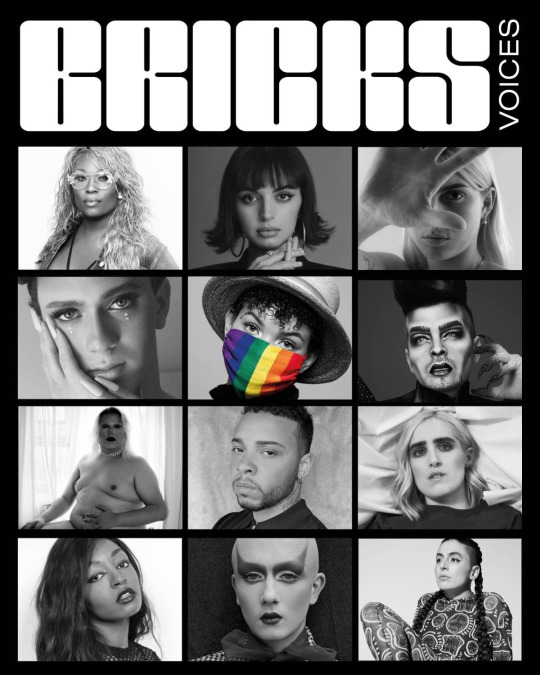
https://bricksmagazine.co.uk/2020/05/29/yasmin-benoit-on-aromantic-asexuality-education/
#yasmin benoit#bricks magazine#this is what asexual looks like#pride#asexual#asexuality#asexual awareness#asexual pride#aromantic#aro ace#aphobia#acephobia#lgbt#lgbtq#lgbtqia#lgbtqa
275 notes
·
View notes